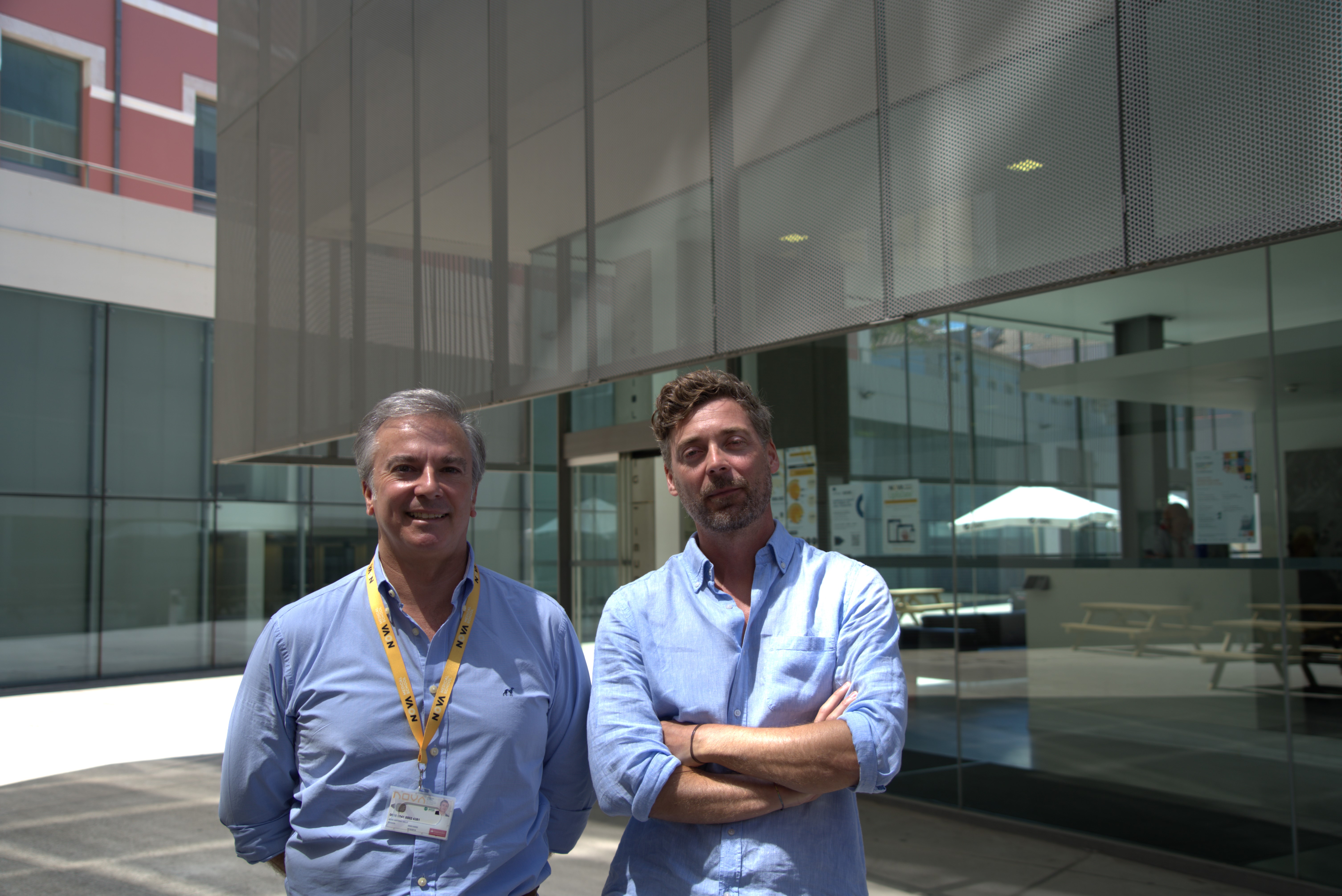NMS researchers have identified links between molecules important for the molecular mechanisms of heart failure.


José António Belo and José Inácio
Researchers from the Stem Cells and Development Laboratory at NOVA Medical School, coordinated by José António Belo, identified five small RNA molecules (miRNA) involved in the progression of heart failure, as well as the respective interactions with their molecular targets, another type of RNA called messenger RNA (mRNA), in a collaborative work with the Faculty of Medicine of University of Porto (FMUP), the Centro Hospitalar Universitário São João (CHUSJ) and with the Institute of Biomedicine (iBiMED) of the University of Aveiro.
For this study NMS researchers used heart tissue biopsies obtained during heart surgeries from patients suffering from a particular type of heart failure designated Heart Failure with preserved Ejection Fraction (HFpEF) performed at CHSUJ/FMUP.
José Inácio, post-doctoral researcher and first author of the study, explains that “with these samples the team prepared genetic libraries of mRNAs and miRNAs that were subjected to a new generation RNA sequencing technique to identify miRNA-mRNA interactions, ie the interactions between small RNA molecules (miRNA) and their molecular targets (mRNA). The sequencing results were analyzed by researchers specialized in bioinformatics of the Genome Medicine lab of iBiMED at the University of Aveiro, led by Gabriela Moura, who identified several potential miRNA-mRNA interactions. After, those interactions were experimentally validated to confirm which of these are relevant to the progression of HFpEF”.
In addition, NMS researchers also postulate that these miRNA molecules can be used as biomarkers to detect and monitor different subgroups of patients with HFpEF, which may contribute in the future to the development of innovative therapies targeted at each particular patient, in a Precision Medicine approach for the treatment of heart failure with preserved ejection fraction.
José Belo, emphasizes the importance of this work and that "the advancement of knowledge in this area is crucial since, currently, heart failure affects about 65 million people worldwide, being one of the main causes of mortality, morbidity, consumption of health resources and the main cause of hospitalization and disability among the elderly”.

Fernando Cristo, Miguel Pinheiro, Gabriela Moura, Adelino Leite Moreira
This study is the result of a collaboration between NOVA Medical School, iBiMED of the University of Aveiro, the Faculty of Medicine of the University of Porto (FMUP) and the Centro Hospitalar Universitário São João (CHSUJ) within the scope of the NEDTDIAMOND Project, coordinated by Professor Adelino Leite Moreira from FMUP/CHSUJ, funded by Foundation for Science and Technology within the scope of Joint Activities Projects (PAC).
The original article publish in the scientific journal Biomedicines can be found here.